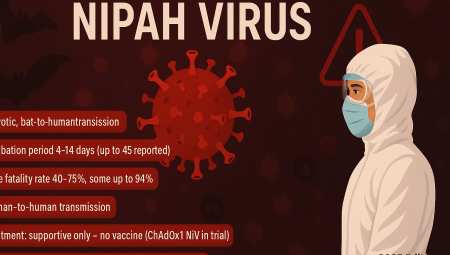Postpartum depression (PPD) is a serious mental health condition that affects approximately 1 in 7 women after childbirth. While it’s normal for new mothers to experience mood swings or “baby blues,” postpartum depression goes beyond temporary sadness. It can severely impact a mother’s emotional and physical well-being, her relationship with the baby, and the overall family dynamic. This article explores the causes of postpartum depression, the risk factors, hormonal and psychological triggers, and what new mothers—and those around them—need to know to seek support and healing.
What Is Postpartum Depression?
Postpartum depression is a mood disorder that develops within the first few weeks—or even months—after giving birth. Unlike baby blues, which typically resolve within two weeks, postpartum depression symptoms are more intense and long-lasting. These can include feelings of hopelessness, persistent sadness, anxiety, irritability, fatigue, and difficulty bonding with the baby.
What Causes Postpartum Depression?
Postpartum depression doesn’t have a single cause; it’s typically the result of a combination of physical, emotional, and environmental factors.
Hormonal Changes
After childbirth, the levels of estrogen and progesterone drop rapidly. These hormonal shifts can lead to chemical changes in the brain that trigger mood swings and depressive symptoms.
- Estrogen crash: Linked to mood regulation
- Thyroid fluctuations: Some women develop postpartum thyroiditis, which can mimic or exacerbate depression
Physical Changes and Sleep Deprivation
Recovering from labor and delivery is physically taxing. Add in sleep deprivation and physical discomfort from breastfeeding or healing incisions, and the body becomes more vulnerable to depression.
- Lack of deep sleep affects emotional regulation
- Pain or discomfort lowers overall resilience
Emotional and Psychological Triggers
Becoming a mother involves a major identity shift. Mothers may struggle with feelings of inadequacy, loss of personal freedom, or fear of not being a good parent.
- History of anxiety or depression increases risk
- Low self-esteem or perfectionism contributes
- Traumatic childbirth or NICU stays can be triggering
Social and Environmental Factors
Support—or lack thereof—plays a crucial role in mental health after birth.
- Lack of partner or family support
- Financial stress or unemployment
- Isolation or lack of a strong social network
Who Is Most at Risk for Postpartum Depression?
While PPD can affect any new mother, certain factors increase the risk:
- Previous depression or mental illness
- Difficult or traumatic childbirth
- Multiples (twins, triplets)
- Unplanned or unwanted pregnancy
- Lack of support at home
Fathers and Postpartum Depression
Surprisingly, fathers can also experience postpartum depression due to stress, sleep loss, and new responsibilities. This is often overlooked but should be acknowledged in family mental health discussions.
How to Prevent Postpartum Depression
While PPD can’t always be prevented, there are proactive steps to reduce risk:
- Prenatal screening for mental health conditions
- Creating a postpartum plan (meals, support, rest)
- Staying connected with supportive friends or new mom groups
- Therapy or counseling during pregnancy
What Triggers Postpartum Depression?
What triggers postpartum depression?
Postpartum depression is triggered by a mix of hormonal shifts, physical recovery, emotional stress, and lack of support after childbirth. Women with a history of depression, anxiety, or trauma are especially at risk.
Professional Help and Treatment Options
Postpartum depression is highly treatable. The key is recognizing symptoms early and seeking help.
Medical Intervention
- Antidepressants (safe options for breastfeeding mothers are available)
- Hormonal therapy for imbalances
Therapy and Counseling
- Cognitive Behavioral Therapy (CBT)
- Interpersonal Therapy (IPT)
- Group therapy or peer support groups
Lifestyle Adjustments
- Rest and recovery
- Nutritious meals and hydration
- Gentle exercise like walking or yoga
Pro Tips: Expert Advice to Reduce Risk
- Start mental health check-ins during pregnancy with your OB-GYN.
- Prioritize sleep by splitting nighttime duties with your partner or a helper.
- Don’t isolate—make plans to connect with at least one friend per week.
- Create a judgment-free space to talk about negative feelings.
- Use mobile apps for mood tracking and journaling.
- Avoid comparison traps on social media.
FAQ: Frequently Asked Questions About Postpartum Depression
How long does postpartum depression last?
It varies. With treatment, many women start feeling better in a few weeks or months. Without treatment, it can last a year or longer.
Is it okay to take medication while breastfeeding?
Yes. Many antidepressants are considered safe while breastfeeding. Your doctor can help you find the best option.
Can postpartum depression affect bonding with the baby?
Yes, untreated PPD can affect bonding. However, with proper support and treatment, healthy bonding can be restored.
What’s the difference between baby blues and postpartum depression?
Baby blues are mild and last a few days. PPD is more severe, long-lasting, and requires medical attention.
Can PPD recur with future pregnancies?
Yes. If you’ve had PPD before, you’re at increased risk in future pregnancies. Talk to your doctor about preventive care.
Conclusion
Postpartum depression is real, common, and treatable. Understanding its causes—from hormonal shifts to emotional and social stressors—can help new parents prepare and seek help when needed. No one should have to suffer in silence. With compassion, support, and professional care, healing is possible.
Have you or someone you love experienced postpartum depression? Share your thoughts or questions in the comments below. Your story might help someone else feel less alone.



